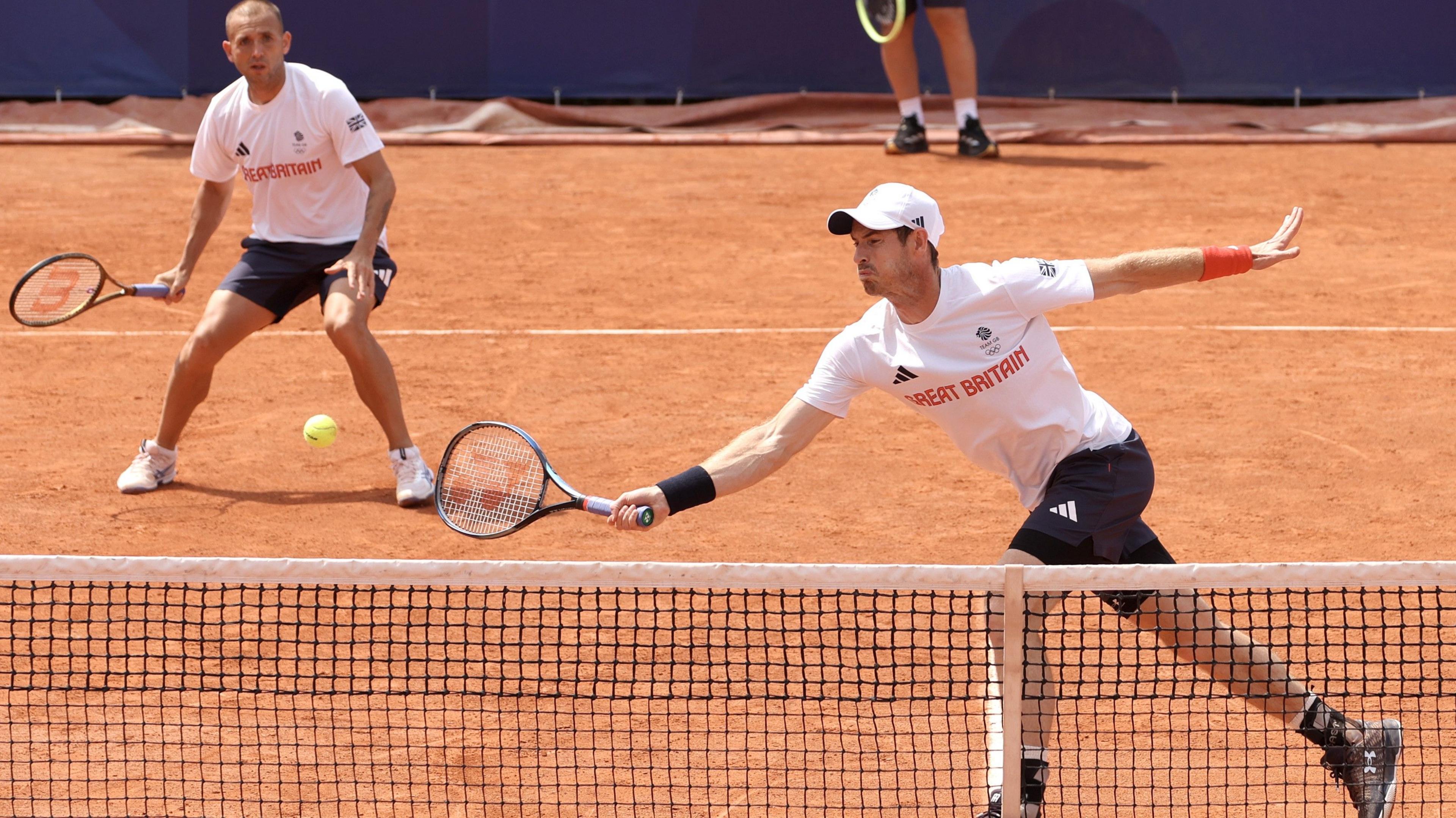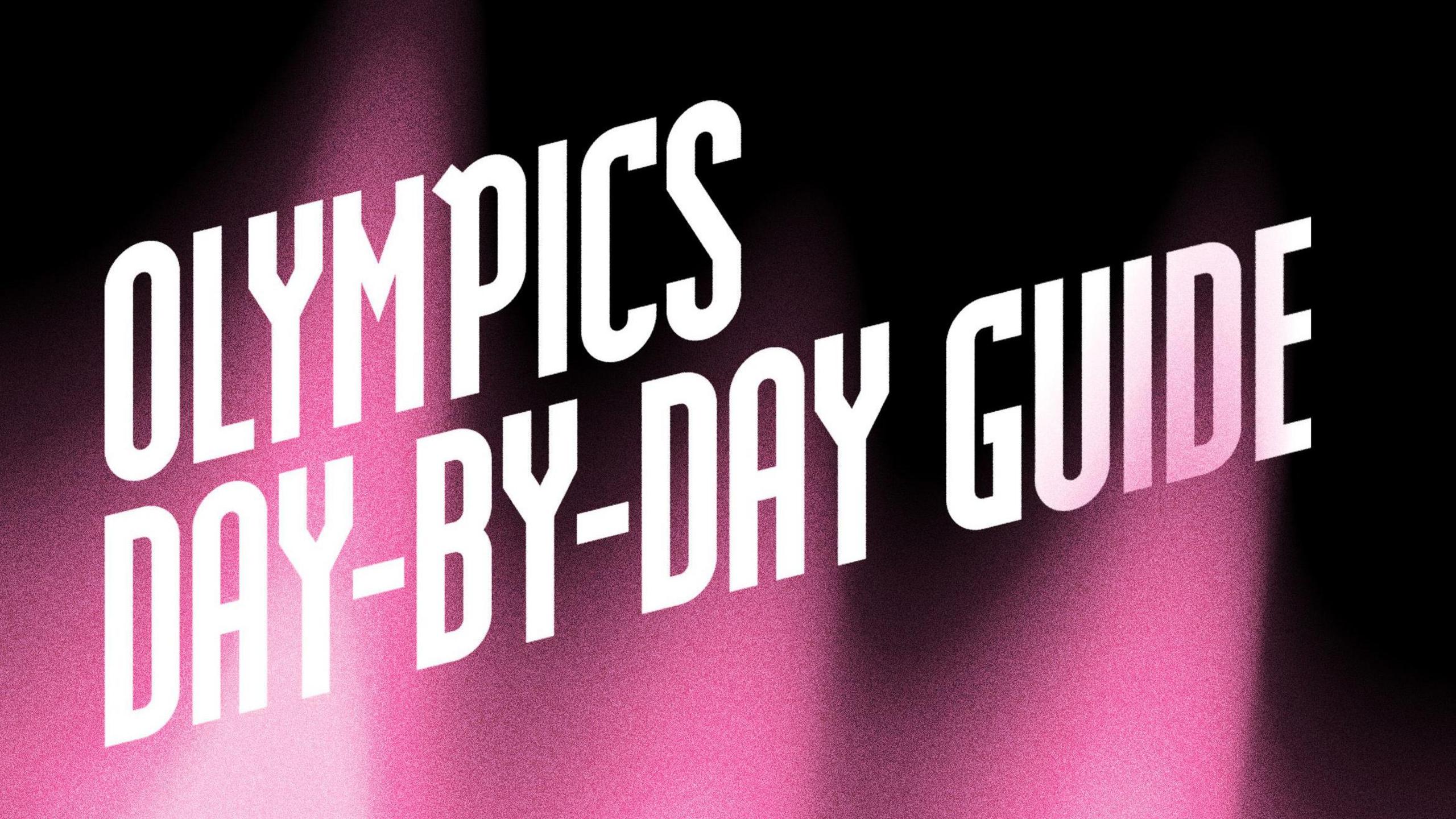Murray out of Olympic singles but will play doubles
Paris 2024: Andy Murray says it is the 'right time' for him to retire from tennis
- Published
Andy Murray has withdrawn from the singles competition in the Olympics but will play doubles in Paris in the final event of his career.
The three-time Grand Slam champion has confirmed he will retire at the end of his fifth Games.
It means the final singles match of his career was against Jordan Thompson in the second round at Queen's in June, when he was forced to retire with a back injury.
That injury also led him to withdraw from the singles at Wimbledon, but he did play a final doubles match at the venue where he won two of his three major titles.
Murray will play alongside Dan Evans in Paris. The pair have been drawn against Japan's Taro Daniel and Kei Nishikori in the first round, with their match taking place on Sunday.
"The Olympics has been incredibly special for me and there have been some amazing memories on the court – particularly in London," Murray said at Thursday's draw.
"I'm happy I get to do this one more time. It's unfortunate [not playing in singles] - I trained to get ready to play both, but I'm getting a bit older now so it gets harder to recover from injuries. I ran out of time."
The draw has thrown up the prospect of Rafael Nadal facing long-time rival Novak Djokovic if they win their first-round ties.
Murray to retire after Paris Olympics
- Published23 July 2024
'Right time' for me to retire - Murray
- Published24 July 2024
Tennis at the Paris 2024 Olympics
- Published24 July 2024
Paris 2024: Novak Djokovic discusses Andy Murray
French Open venue Roland Garros hosts the Olympic tennis tournament from 27 July to 4 August.
Murray is a two-time singles gold medallist, triumphing in 2012 and 2016 to become the first male tennis player to win two Olympic golds.
He also won mixed doubles silver with Laura Robson in 2012.
Murray won the 2012 US Open and two memorable Wimbledon titles in 2013 and 2016.
His singles career has ended with 46 ATP Tour titles, including 14 Masters 1,000 events.
He told the BBC on Wednesday that Paris is the "right time" for him to retire, having struggled with injuries over the past few years.
He had back surgery on the issue he picked up at Queen's, having previously suffered an ankle injury in March.
"Me and Dan made the commitment to each other, that is what we will prioritise," Murray said on Wednesday.
"That gives the team and us the best opportunity to get a medal.
"My back is still not perfect. I didn't feel great in the build-up to Wimbledon and during it. I feel better here."

Andy Murray (front) and Dan Evans have been practising together at Roland Garros
Paris 2024 Olympics day-by-day guide
- Published10 August 2024
Olympic tennis draw - key match-ups
Like Murray, Nadal is also playing in his final Olympics and it is still unclear how long his career will continue.
The 38-year-old Spaniard has been struggling with injury over the past couple of years but is fit enough to play in both the singles and doubles in Paris.
Nadal, who has won a record 14 men's singles titles at Roland Garros, starts against Hungary's Marton Fucsovics - with the carrot of potentially continuing his enduring rivalry against Serbia's Djokovic.
Top seed Djokovic, 37, plays Australia's Matt Ebden in his opening match.
British number one Jack Draper faces 2016 bronze medallist Nishikori, and on Saturday, Cameron Norrie plays Tallon Griekspoor of the Netherlands knowing he could face French Open and Wimbledon champion Carlos Alcaraz in the second round.
Evans also features on day one of the Olympics and will face Tunisia's Moez Echargui, while Katie Boulter - Britain's sole representative in the women's singles - starts against Slovakia's Anna Karolina Schmiedlova on the same day.
Boulter will team up with Heather Watson in the women's doubles. They have been drawn against Germany's Angelique Kerber - the 2016 silver medallist in the singles, who has announced she will retire after these Games - and Laura Siegemund.
Joe Salisbury and Neal Skupski, who are seeded fifth in the men's doubles, face Czech pair Tomas Machac and Adam Pavlasek.
Murray and Evans are 'dark horses' for a medal - analysis
Murray's decision to only play in the doubles increases his chances of winning an Olympic medal in Paris, according to Australian doubles legend Mark Woodforde.
"The doubles does present his best opportunity to win a medal," Woodforde, who won gold alongside Todd Woodbridge at the 1996 Games, told BBC Sport.
"He’s faced with the retirement issue and it is testament to his stature that he is willing to give it a crack in the doubles with Dan.
"It's a wonderful opportunity for them to go deep and they will be a tough pair for any country to face.
"I think the Murray/Evans combination is really one of the dark horses for the medals."
Woodforde, who also won 16 Grand Slam men's doubles titles, says half of the workload makes the clay "less taxing" for 37-year-old Murray.
"If he competed in singles, it might have impacted his ability to be ready for the doubles and had a negative impact," he said.
"It could have been an early departure in both events, so the big decision he ultimately had to make was 'I’ve got a partner who can help me with the loads'.
"It is just not as demanding for him on the doubles court.
"In singles there is the propensity of longer points because of the high bounce of the court, the pace is taken off because of the surface and the sliding as well.
"You’re coming from the grass swing, too, where it is more or less a transition going forward, but on clay you have to incorporate going back as well as side to side. In doubles you’re not going left and right and sliding quite as much.
"For these guys playing singles, that’s where different balls, higher bouncing, can affect the shoulders and the knees are an area where you are really tested out.
"So the tough part for both singles and doubles in this event is making sure your body can withstand the rigours."
Related topics
- Published26 July 2024

- Published10 August 2024
